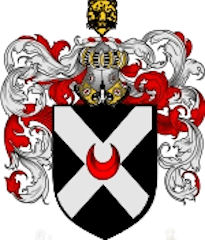Dalmain Alexander Lytle (1916-1989)
(Called Dalmain by his parents and siblings, but Alex by his wife and sons.)
He had severe peritonitis at the age of four and a half years. The Managing Director of the Sun Life of Canada, Mr Junkin, travelled to Nottingham to give comfort and monetary help to our parents and after six anxious weeks in a nursing home, the little boy recovered after a long convalescence.
My earliest memories of Alexander were of his exuberance at the Great Indian Exhibition at Wembley in the 1920’s. We had travelled from the South Coast of Devon and Cornwall up to London and stayed at our usual hotel, the Ivanhoe, adjacent to St. Pancras. We had dinner in Coventry Street one evening, and Alex conducted the orchestra standing on his chair. After a long tiring day he found music more enticing than food. Each floor of the restaurant had its characteristic fare and two had orchestras, for the dansant and later for dinner. Alex was fivish and in an Eton suit.
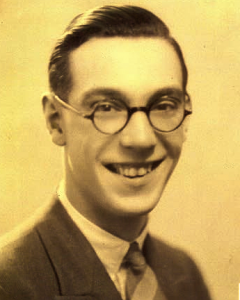
He was admitted in 1932 to Canford School, Dorset; the head was a Professor Hayden, son-in-law of head of Eton, Ardington. After leaving Canford, he joined Players as a trainee: Imperial Tobacco Company was formed about this time. For young fellows during the 1930’s jobs were scarce, and Mr Yeoman, a parent of a contemporary of Alexander’s and head of the Nottingham Player branch of Imperial Tobacco, was approached by the headmaster as indeed other parents who employed big staff were too, if they could find places for pupils in their firms. Alexander had set his heart on joining the Army, he enjoyed the O.T.C. and had a good seat on a horse, but he had a heart murmur, found at his medical, and therefore joined Players.
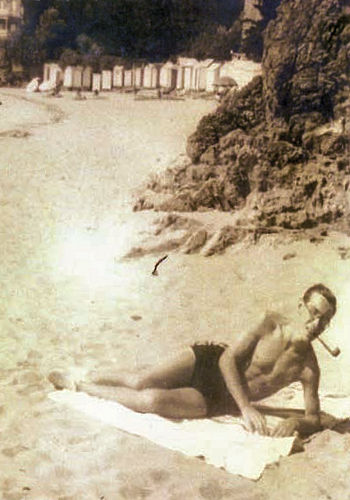
Soon the War seemed imminent and he married Gwyeria Pryor, known as Gwen, in 1939 when she was 25, and lived in the Leicestershire village Nether Broughton, and motored in each morning.
The first week after War was declared he had offered himself as a private. He was enlisted into the Northamptonshire Regiment and did plane spotting duty on the roof of Northampton’s cinema, seeing the huge flight of enemy planes to Nottingham.
The small guns were useless but as soon as Bofors were made at the Royal Ordinance Factories, he had his first success. Inevitably someone recognised him after a year, and suggested he put in for a transfer and officer’s training. This he resisted for a time. At last he was sent to Aberystwyth University to study languages and soon was a Second Lieutenant in the Northamptonshire regiment, No 172332 A.A.W.XO c/o A.P.O. 1730.
Their first child, Christopher, was born in March 1940.
On a secret voyage half way across the Atlantic and then via St Helena and round the Cape of Good Hope and up the Indian Ocean to Durban – three months of sea and no landings to avoid German U boats. He studied Urdu, Hindustani all the way. Durban gave each soldier a wonderful welcome and took them into their homes and showed off the beauties of the Natal Coast.
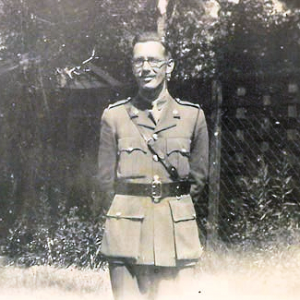
Sailing to Bombay after this rest he was promoted to First Lieutenant, and sent up to the famous Dehra Dun military camp. There he found he was to travel into the foothills of the Himalayans, to find and train the Ghurkhas. This he did and was promoted to Captain; after a few months training them, then through the Khyber Pass for three months, and when jeeps came over by sea from the U.K. these were used and serviced. Then Burma was taken by the Japanese. Captain Lytle and his Ghurkhas were buying elephants to transport their regiment’s equipment, through the Naga Hills to relieve Orde Wingate and his Chindits below Assam. The battle of Imphay he didn’t even hear about; for what seemed like years Captain Lytle and the Ghurkhas and their elephants were hacking a way through the jungle and leeches. Finally someone radioed them and ordered them to cross the Irriwaddy to Mandalay. There they began to push the Japs down and out. Burma officers were on horseback on the Rangoon Road.
Unfortunately as war in Europe ended, the Japs were at the border of India (one continent then). On the road to Rangoon during the last month of the Asian War, Captain Alexander fell and was dragged some distance by one stirrup as he hung from his horse, concussed. Hospital in Chittagong and concussion persisted. AC.O. had him moved by rail to Delhi and better nursing. After several months of care his consciousness returned. He was promoted in Government House to Major and recommended a decoration with an M.B.E. 1946 at the Palace.
Their second son, Richard, was born in 1947.
Back in Nottingham, Alexander put up for Meadow Lane Ward as a candidate in the local elections. He had a rousing campaign but did not get in for the Meadow Lane Ward. He joined as many servicemen did, a loyalist movement, useless for a small group of thousands, to oust Labour or Tories at that time, e.g. Atlee or Churchill.
There was no prospect of employment at Players in Nottingham, and Alex and Gwen were expecting another child, their third son, Jeremy, so they went to live near her parents in Southsea, Hampshire, the seaside resort next to Portsmouth. There was no suitable work there either, and Alex accepted a job taking tourist photos on Southsea pier.
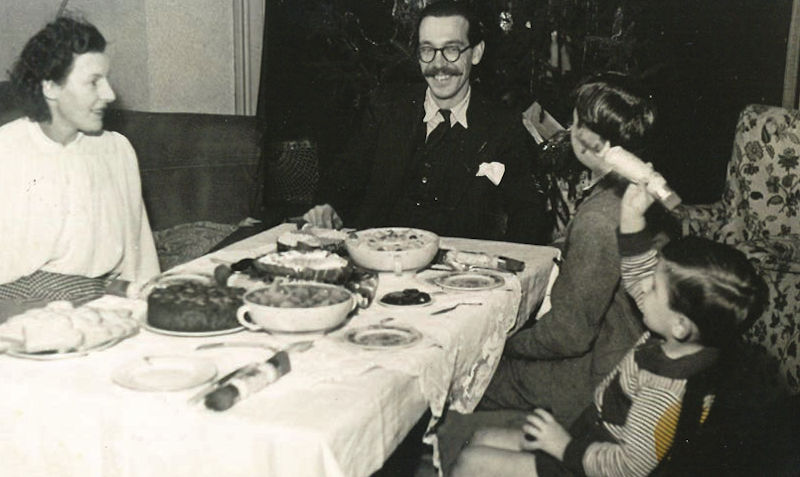
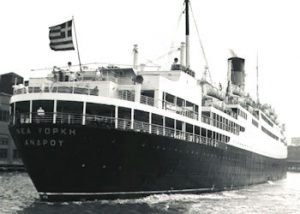
By 1953 they were getting desperate for a steady income. They decided to emigrate to the U.S. So Gwen took the three boys to America on the S.S. New York on 19th October 1955 with the hope of Alex joining them later. Gwen was allowed in, to settle, and spent some time living in the Bronx in a small apartment. Her neighbour was a middle-European Jewish man – very kind, who helped her get a secretarial job in Manhattan.
Ruth believes that Alex was refused entry because of a patch on his lung, exacerbated in the terrible conditions of the Burma jungle. He had to think of a way of entering the U.S. He later wrote movingly to Ruth of his adventures at sea.
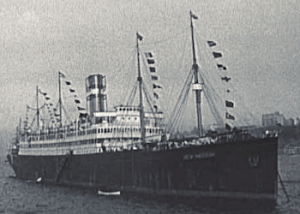
Alex had decided to work his passage, and ‘jump ship’ when it was in New York harbour, so he joined the crew of S.S. United States, which was competing with the British Queens Elizabeth and Mary for the Blue Riband for the fastest crossing all that year. The only vacancy was for a sous chef, an unlikely job for him. The ship had to go ‘all out’, so that the engines throbbed more than usual. The crew were sleeping in cramped quarters in the pincers of the ship, i.e. in the V shaped prow. Sleep was difficult, either because of the engine noise, or the slapping of the water on the pincers. In the kitchen, which was well below the water line, the pumps worked all the time, but still the water was at ankle height or more, even with the duck boards on the floor. So that after his shift as a sous chef, his feet were crinkly from the water, as no shoes could be worn. Of course there was no air conditioning, so the air temperature was stifling.
Alex tried to get off the ship in N.Y. harbour several times, but he was barred by the huge first mate each time, holding a knife to his throat, who demanded his wages before he could get off. So Alex had to go back and forth across the Atlantic, until he spotted an opportunity to jump ship, with his pay intact. Did Alex finally jump in Portsmouth Harbour? Fred has found the Passenger List for the S.S. Nieuw Amsterdam arriving at New York on 14th December 1955, and Alex was on board, officially, as a passenger, just 2 months after Gwen had arrived in the U.S. So Alex must have re-applied to enter the U.S. and been accepted.
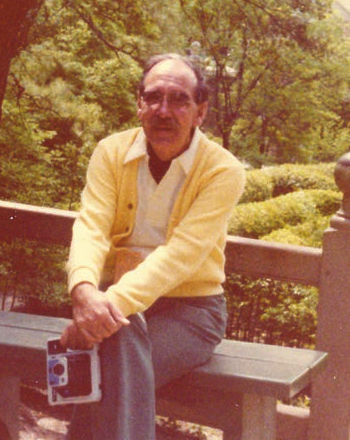
Once in America together, Alex and Gwen took a seasonal job in New England, keeping a summer camp aired in the winter months, and then preparing it for guests in the summer holidays. Then they went to Florida, and stayed there. They were joined by John, who was a child of one of Gwen’s relations, and an orphan, and he was brought up as their own. We have details of Alex’s Alien Registration, filed with the District Court in Miami, Florida. Fred says this usually means an applicant is issued with a Green Card. All during this first year or two, Alex sent post cards to Ruth, telling her of his excitement with America and its natural beauty, which I have kept.
Alex took waitering jobs, and then ended up selling motor boats for Chris Craft at Pompano Beach, while Gwen worked as a secretary. Alex made a successful career out of this, and then began selling property. Fred has found a copy of Gwen’s application for Naturalisation which was accepted on 18th October 1963 in Miami. Alex’s petition for Naturalisation, number 29,483 was filed also in Miami, Florida, and he too, was accepted on the same date, so presumably the patch on his lung had cleared up and he never developed T.B., in the kinder weather of Florida. He died aged 73.
Alex and Gwen’s children
Christopher Rodney (b. 1940)
Christopher was born after Alex had left to serve in the Army.
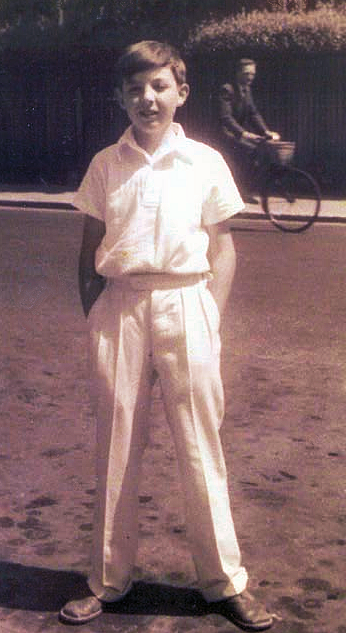
When he was 15 he sailed with the family for New York and a new life. Within a year they had ended up in Florida where they stayed in the Palm Beach, Boca Raton, Pompano Beach area. Richard has told me that Christopher fought in Vietnam. Christopher married Kathleen Lenore Cregon in 1973, and they now live in Davis, California. They have one child, Erin, born in 1975.
Richard Godfrey (b. 1947)
Richard was born when Alex was back from the War. He had always suffered from asthma, and when he was 18 the Army Board refused him, so unlike his brothers, he did not go to Vietnam. He attended the University of Southern California in La Jolla, and had a very good time, he told me. There was plenty of surfing, beach parties and pretty girls. I do not remember what his degree was, but while he was there he met, and later married Linda Mae Risser, in 1975.
Linda was born deaf, but was studying the psychology of coping with deafness, so that she could advise, communicate and teach other deaf students. Richard learned to do sign language, and to speak so that Linda could lip read from him, easily. They have settled in Washington, and live in University Park, just outside the City, where Richard is an administrator at Gallaudet University for the Deaf, and Linda has a practice.
Ruth had had such success in contacting her niece Diana Lytle after so many years, that I decided I would track down her nephews (sons of Alex and Gwen) living in America. Ruth had vague ideas of them living either in California or the Washington area, so early in 1988, when I knew Roger and I were travelling to America for a trade show, I wrote to all the R. Lytles in the California phone books, which are stored in the public library. But I drew a blank, so tried the same thing in Washington D.C. My cousin Richard got the letter and was delighted to make contact. He invited Roger and I and a 9 month old Claire to spend the day with them. We had such a good time catching up with Richard, Linda and their two daughters.
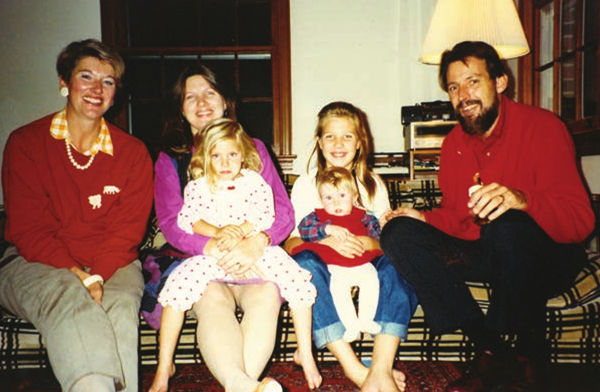
When we were living in New York in 1995, we returned to visit them again. By then, Richard’s Mother, Gwen was living with them, and Linda had had a third daughter. We were taken out for the day into Washington, to visit some of the big museums. We had a wonderful day out, and Claire and James were really intrigued with the girls, who sang us jolly ditties all the way to the airport in the back of their station wagon. They were very happy to find they had a male cousin and made a great fuss of James. I had not met Gwen since I was a small child, and she was keen to tell me stories about my Father, which amazed me, as no one had ever talked about him to me. She had disliked him. He was very flirtatious, so that she felt uncomfortable with him, and she was not surprised when he left Ruth.

They have three daughters: Nerissa born in 1978, Cassandra born in 1985 and Samantha born in 1988.
Jeremy Alfred (b. 1949)
When he was a young man, Jeremy served time with the Army in Vietnam.
Richard claimed that both his brothers had suffered as a result of that War. He had little to do with them, and advised me that he did not think they would welcome a visit from English relations. Both Fred and I have actually tried to contact Jeremy while we were in the area, but he has never responded.
In 1986 he married Elizabeth Julia Weisz, and they live in Pompano Beach, Florida.
